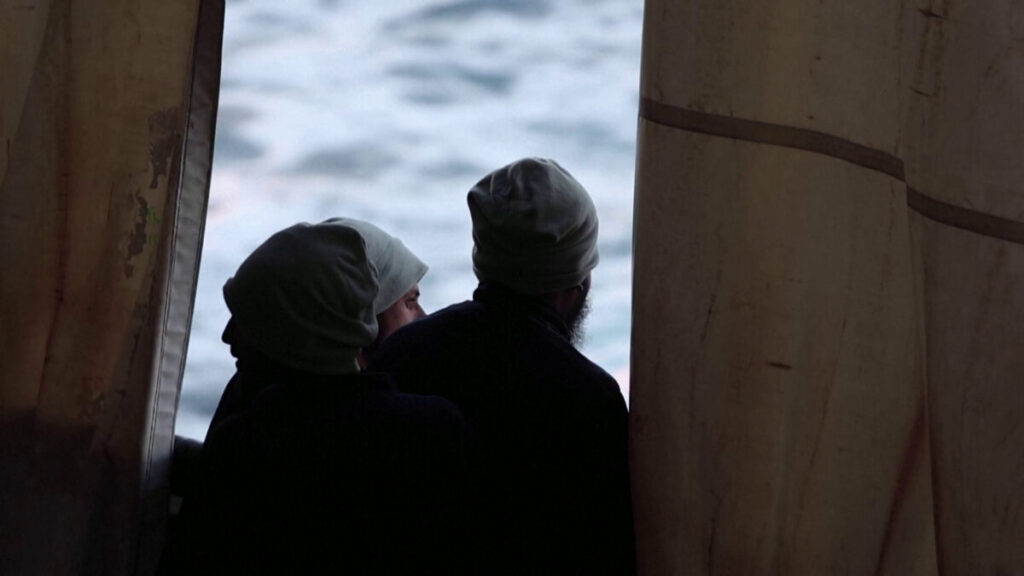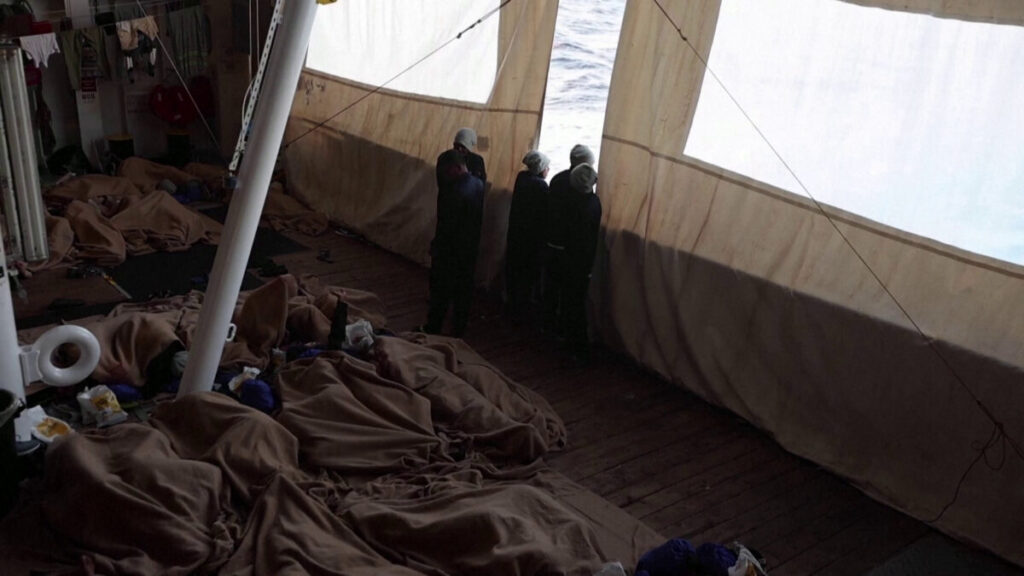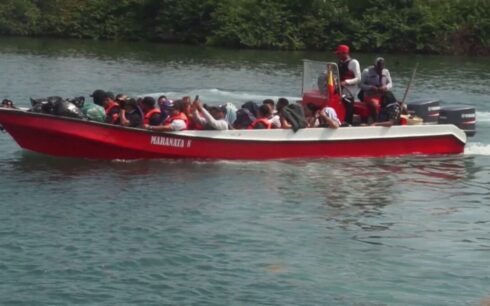A project coordinator for Medecins Sans Frontieres (MSF) – or Doctors Without Borders – has voiced concern about the future of their rescue operations as criticism grows over a code of conduct for migrant charity ships introduced by the Italian government.
Italy’s parliament passed into law a new set of rules in February as part of Prime Minister Giorgia Meloni’s efforts to crack down on the rescue vessels, which her government says encourage people to make the perilous trip across the Mediterranean from northern Africa.
“Since a new decree is in place, we have seen a huge impact in our operations,” a project coordinator of MSF Virgina Mielgo Gonzalez said.
“To give you an idea, last year, during all the year we could rescue 3,800 people, more or less. If with this new decree (was) in place, last year we would have rescued 1,080 people,” she said on board the Geo Barents rescue vessel.

The charity group rescued some 189 migrants off the coast of Libya early on Friday (March 24).
People from Bangladesh, Pakistan, Egypt, Eritrea, Syria and Palestine, were rescued from a wooden boat approximately 20 hours after they departed from Zawiya in Libya. The ship was asked to sail to the port of Bari.
Under the new law, ships have to request access to a port and sail to it “without delay” after a rescue, rather than remain at sea looking for other migrant boats in distress, and disclose detailed information about their rescue activities.

Previously, vessels operated by charities, or non-governmental organizations (NGOs), often spent several days in the central Mediterranean and regularly completed multiple rescues before heading north towards Italy.
The law stipulates that captains breaching the new rules risk fines of up to 50,000 euros ($53,355), and repeated violations can result in their vessels being impounded.





